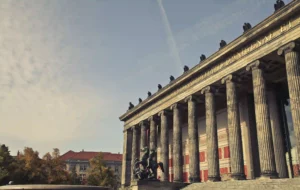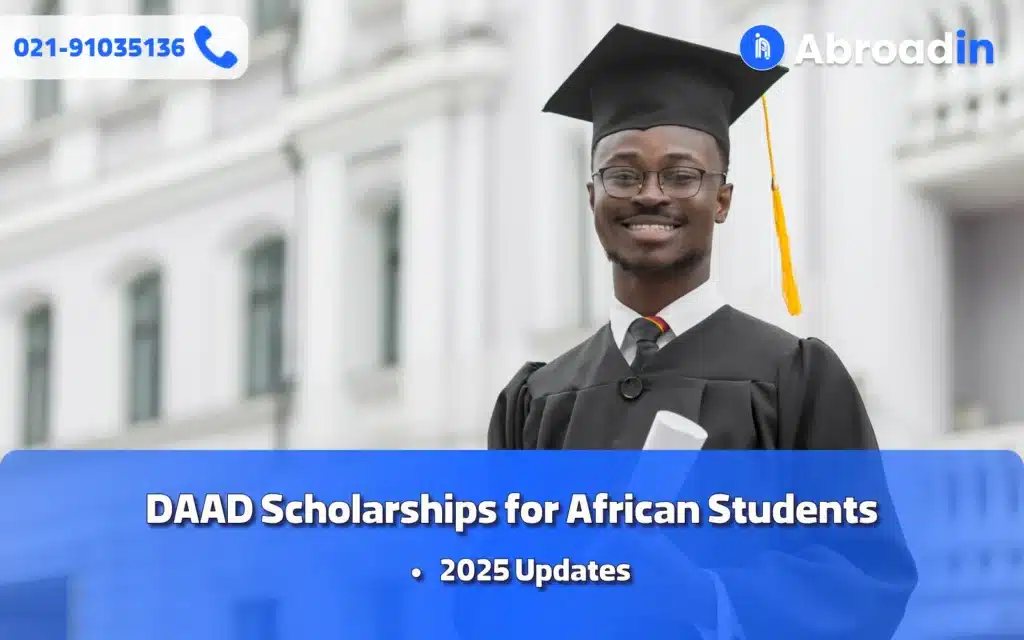

Gerda Henkel Foundation PhD Scholarships in Germany
- Eligible Nationalities: Open to all nationals
- Official website
The Gerda Henkel Foundation prioritizes supporting exceptional early-career researchers, fulfilling the founder’s vision. Their Ph.D. program awards scholarships to 50 highly talented students each year. Let’s check more information:
Scholarship Duration:
- Up to 2 years, with a possible 1-year extension upon application.
Funding Components:
- Basic scholarship amount
- Travel allowance for stays abroad exceeding 4 weeks
- Family grant for children under 18
- Travel and material expenses
Application Process:
- Applications are submitted electronically only.
- Documents must be in German or English, with a font size of 11 minimum and line spacing of 1.5.
- Required Documents:
- Research proposal (max 8 pages) + bibliography (optional)
- Schedule and work plan (max 2 pages), including necessary travel
- Detailed cost estimate for travel and materials
- Curriculum vitae (tabular format)
- Copy of university degree certificates (Master’s or relevant)
- Two expert opinions (recommendation letters)
- Incomplete applications or those missing specialist opinions will be rejected.
Eligibility:
- Age: 28 or younger upon Master’s degree completion (exceptions considered for extenuating circumstances)
- Minimum grade: 1.5 (German grading system) or equivalent for international students
The Gerda Henkel Foundation emphasizes a completely electronic application process. You must upload all your documents through their online system; sending them via email or regular mail won’t be considered.
Remember, it’s your responsibility to secure the two required recommendation letters. Luckily, you don’t need to provide proof of enrollment at the time of application.
if you want to know more about German Student Visa for Indian Students read this article:
Max Planck Society Research Scholarships
- Eligible Nationalities: Open to all nationals
- Official website
The Max Planck Institute for Light offers fully funded PhD scholarships in Germany for guest scientists (Herbert Walther Fellowship) and doctorate students in optics and quantum optics.
This institution also supports female researchers through travel grants and childcare-focused scholarships. Let’s explore them separately:
- Herbert Walther Fellowship
- Supports outstanding international guest scientists and PhD students in optics and quantum optics.
- PhD students need a degree suitable for doctoral studies.
- The application requires a motivation letter, CV, and Master’s transcript.
- Details: tax-free, based on PhD salary, max 6 months.
- Emmy Noether Travel Grant (Women Only):
- Supports professional development by connecting female researchers with leading scientists.
- Eligible: Female MPL employees with leadership potential.
- Funding: Up to 1-week stay in a European research group led by women (travel, accommodation, meals covered).
- The application requires a CV, motivation statement, chosen host group, travel timeframe, and supervisor approval.
- Deadlines: March 31, June 30, September 30, December 31.
- Christiane Nüsslein-Volhard Stiftung Scholarship (Women Only):
- Supports female graduate students and postdocs in natural sciences and medicine with children.
- Provides monthly grants for childcare and household assistance.
- Applications open September 1; Deadline: November 30.
Since Max Planck Institutes operate somewhat independently, verifying the application procedure directly with the specific institute offering the scholarship you’re interested in is crucial.

Fraunhofer-Bessel Research Award
- Eligible Nationalities: Open to all nationals
- Official website
The Fraunhofer-Bessel Research Award honors top non-European Ph. D.s in applied research. It is awarded by the Alexander von Humboldt Foundation and the Fraunhofer-Gesellschaft and offers up to a year of collaboration opportunities at German Fraunhofer Institutes.
- Fraunhofer-Bessel Research Award: recognizes and empowers top international minds in applied research
- Nomination-based award (up to 3 per year)
- Eligibility
- Non-European PhD and Postdoctoral researchers
- Significant contributions to applied research
- Internationally recognized achievements with lasting impact
- Award
- €45,000 financial reward
- Additional benefits include:
- Networking opportunities
- Research collaboration possibilities
- Invitations to prestigious events
While the Fraunhofer-Bessel Research Award is a fantastic opportunity, it’s essential to understand the nomination process. Institutions, not individual researchers, put forward candidates they believe meet the eligibility criteria.
So, if you’re an accomplished researcher in applied research, ensure your academic achievements and future research goals are well-documented and communicated within your institution. This can increase your chances of being nominated for this award.
DAAD – PhD Scholarships in Germany
- Eligible Nationalities: Open to all nationals
- Official website
The world’s largest organization, the German Academic Exchange Service (DAAD), annually supports over 100,000 international students and researchers. Let’s explore funding options for your academic journey:
- Targets: Graduates, PhD students, and Postdocs
- Funding for Study visits, research visits, internships
- Programs Offered:
- Research Grants (1 year): For PhD students from most countries.
- Master’s Scholarships: Primarily for students from industrialized nations.
- Hilde Domin Programme: For students at risk of educational denial in their home country (nomination required).
- Sur-place and Third Country Programs: Funding for graduate, PhD, or postdoctoral studies in your home country/region.
- How to Apply:
- Visit the DAAD scholarship database.
- Find the program you’re interested in and pay close attention to deadlines.
- The database will link you to the application portal.
- Applications are reviewed by independent committees based on subject-related criteria.
- Benefits of these fully funded PhD scholarships in Germany include:
- Monthly stipend (€934 for graduates, €1,200 for PhD students).
- Flat-rate travel allowance.
- Health, accident, and personal liability insurance.
- Additional benefits may include:
- One-off research allowance
- Family benefits
- Language course funding
The DAAD German Studies Research Grant is a program designed explicitly for highly qualified undergraduate and graduate students. It offers funding for short-term research projects in Germany, typically lasting one to two months. Students must be nominated by the professor supervising their research project.
Friedrich Ebert Foundation Scholarship for PhD
- Eligible Nationalities: Not available for students from Western Europe
- Official website
Born from the limitations faced by working-class youth in Weimar, Germany, the Friedrich-Ebert-Stiftung emerged in 1925. The first of its kind, it awarded scholarships to talented students from disadvantaged backgrounds, fostering academic achievement and a commitment to social democracy, a mission that continues today.
- Eligibility:
- Applicants with substantial academic achievements
- Active involvement in social and political issues
- Commitment to the principles of social democracy
- Open to students from:
- All academic subjects
- Public or state-approved universities and universities of applied sciences (FH)
- Postgraduate programs (PhD)
- International Students (up to 40 per year):
- Must be from Africa, Asia, Latin America, or Eastern Europe
- Already enrolled in a German university or have a PhD supervisor
- Living in Germany before applying
- Proof of German language proficiency (C1 level)
- Proof of initial academic achievements (except Master’s students)
- Benefits include:
- Monthly stipend: €650 (primary) or €1,000 (graduate)
- Family allowance (€276, if applicable)
- Healthcare cost reimbursement
- Expectations:
- Regular participation in FES seminars and activities
- Above-average academic performance
- Continued social and political engagement
- Submit semester reports on academic progress and social involvement
- Time of Application:
- Deadlines vary depending on the program:
- Diploma/Magister/State Exam: by 6th semester
- Bachelor/Undergraduate: 3 semesters before the standard program end
- Master/Postgraduate: by 1st semester
- Application Process (4-7 months):
- Online application (in German)
- Individual interviews (if shortlisted)
- Interview with FES lecturer
- Interview with FES scholarship committee member
- Committee discussion and decision
- Written notification of the outcome
- Deadlines vary depending on the program:
Due to the emphasis on social and political engagement, the Friedrich-Ebert-Stiftung considers German language proficiency essential for all scholarship recipients, even if their chosen degree program is taught in English.
DKFZ International PhD Program in Germany
- Eligible Nationalities: Open to all nationals
- Official website
DKFZ PhD positions are fully funded PhD scholarships in Germany for at least three years (competitive salaries, no tuition fees). Funding comes from DKFZ or supervisors, and social security is included.
- Application Deadlines:
- Summer Selection: May 15 (2024) – No Winter Selection in 2024/25.
- Following Selection: April 24 (2025)
- Usual Schedule (from Winter Selection 2025/26 onwards): May 15 and December 15 deadlines.
- Selection Process (Summer Selection – approx. timeline):
- Application Review: 6 weeks after the deadline.
- Shortlisted Applicants:
- Interview preparation: Provide contact details for 2 referees
- Panel Interviews (June 17th-28th):
- Present research project and scientific paper.
- Evaluated on academic achievements, research experience, and passion for cancer research.
- Most Successful Applicants:
- Individual Interviews with Supervisors (chosen from 5 preferred projects).
- On-site Visit (July 23-25): Explore research environments, meet supervisors, and attend social events.
- DKFZ Ph.D. Program Application
- Apply through the Online Application System (opens 6-8 weeks before the deadline).
- Required Documents:
- Academic certificates (electronic copies, PDF under 5MB).
- English language certificate.
- Statement of motivation.
- Letters of recommendation (submitted by referees by application deadline).
- Re-application:
- Not invited for interview: Create a new account and re-submit documents.
- Invited for interview (but not offered position): Contact supervisors directly.
- Already affiliated with DKFZ: Indicate affiliation and details in the application.
- Secured third-party funding: Apply if the Ph.D. started after the previous selection deadline and state affiliation in the application.
Many German scholarships, including the DKFZ Ph.D. The program doesn’t require tuition fees. Ph.D. study at most German universities is free, and funding is readily available from various sources, such as government agencies, research societies, and other organizations.
IEG Research Fellowship Program
- Eligible Nationalities: Open to all nationals
- Official website
The Max Planck Institute for History offers fellowships for Ph.D. students from both Germany and abroad. These fellowships are open to students with a Master’s degree in history, theology, or a related field that uses historical methods.
Applicants of these fully funded PhD scholarships in Germany must be within the first three years of their doctoral studies at the time of application. However, exceptions may be considered on a case-by-case basis.
- Deadlines:
- February 15
- August 15
- Application Requirements (in PDF format):
- Completed application form (available for download)
- Curriculum vitae and list of publications (optional, no photos)
- D. thesis outline (max 15,000 characters)
- D. thesis structure
- Detailed timetable for your stay at the IEG
- University transcripts and proof of language competence
- Application Submission:
- Email to: [email address removed]
- Subject: Fellowship Application
- Language: English or German (proficiency in English required)
- Reference Letters:
- Primary advisor: Submits a letter directly to IEG by deadline ([email address removed]) discussing:
- Applicant’s academic qualifications
- D. project details (topic, goal, current state)
- Planned work at the IEG (timeline and schedule)
- Secondary referee: Contacted by IEG (details in the application form). Inform them of your application beforehand. The letter should address:
- Research project (question, method, results, representation)
- The current state of research on the topic
- Value of IEG Fellowships:
- Monthly stipend: €1,350 (used exclusively for the research project at IEG)
- Family allowance may be available for accompanying partners with low incomes and children. Indicate on your application.
- Primary advisor: Submits a letter directly to IEG by deadline ([email address removed]) discussing:
The upcoming application deadline for IEG Fellowships for Doctoral Students is August 15, 2024. This deadline applies to fellowships that commence in March 2025 or any time after.

Heinrich Böll Foundation PhD Scholarships in Germany
- Eligible Nationalities: Open to all nationals
- Official website
The Heinrich Böll Foundation annually awards scholarships to 1,500 students from graduation to Ph. D.s across all subjects and nationalities. The Foundation prioritizes social/political engagement and alignment with its values: ecology, sustainability, democracy, human rights, self-determination, and justice.
- Eligibility:
- International graduates and doctoral students
- Applicants with a strong academic background
- Active social and political engagement
- Proficiency in German (B2 Level or DSH2 minimum)
- Application Process (Online Only):
- Gather information and documents (begins 6 weeks before deadlines)
- Register for the online portal
- Complete the application form
- Upload required documents
- Submit your application by the deadline (March 1 or September 1)
The Heinrich Böll Foundation prioritizes well-rounded students. Beyond academic excellence, it seeks candidates passionate about social justice, ecology, and human rights, which reflect the Foundation’s core values.
University of Potsdam PhD Completion Scholarships
- Eligible Nationalities: Open to all nationals
- Official website
The University of Potsdam offers PhD scholarships to current doctoral candidates enrolled at the university. These scholarships, funded by the Graduate Fund of the State of Brandenburg, provide financial support for living costs, typically €1,500 per month.
- Scholarship Types:
- Fully funded PhD scholarships in Germany (up to 36 months): Supports doctoral research projects.
- Completion Scholarships (up to 6 months): Provides funding to finalize a PhD dissertation.
- Eligibility:
- Current PhD candidate at the University of Potsdam
- Supervisor affiliated with the University of Potsdam
- Funding:
- Monthly stipend: €1,500 (excluding family allowance)
- Part-time scholarships are considered in exceptional cases
- Scholarship start date: May 2024 or later
- Application Process:
- It opens from January 17 up to March 3 every year.
- Review details and regulations on the Potsdam Graduate School website.
- Prepare a complete application package in a single PDF document.
- Apply via email to [email protected]
- Address application to Universität Potsdam, Geschäftsstelle der Vergabekommission für die Graduiertenförderung, Frau Nadine Mohaupt, Am Neuen Palais 10, 14469 Potsdam.
It’s important to note that awardees may also be responsible for their health and social insurance costs. The application process is open to all disciplines within the university, and there is flexibility in choosing the start date of the scholarship.
However, awards are typically granted at the beginning of each semester, meaning funding would commence in May or October as soon as possible.
Rotary Foundation Global Scholarship Grants for Development
- Eligible Nationalities: Open to all nationals
- Official website
The Rotary Foundation awards scholarships, called Rotary Peace Fellowships, to college graduates and professionals interested in peace and conflict resolution.
These fellowships support individuals pursuing a master’s degree or a professional development certificate program at a partner university.
- Eligibility:
- Be a graduate student with a clear career path in one of Rotary’s focus areas.
- Demonstrate a commitment to community service and long-term, sustainable change.
- Possess strong leadership potential and a proven academic record.
- Have well-defined goals for using the scholarship to advance their field.
- Be committed to maintaining a connection with Rotary after the scholarship period.
- Selection Process:
- Reviewing the candidate’s experience, academic record, and career goals.
- Conducting interviews to assess leadership skills, commitment to service, and scholarship goals.
- Collaborating with a host Rotary club or district in the student’s study location.
- Application Timeline:
- Applications for scholarships starting in August-October are due by June 30.
- All other applications are accepted on a rolling basis but should be submitted at least 3 months before the student’s departure date.
- Budget and Funding:
- Global Grants have a minimum budget of $30,000 with a maximum Rotary Foundation contribution of $400,000.
- Funds can come from various sources, including District Designated Funds, cash contributions, and directed gifts.
- Eligible expenses include tuition, fees, living expenses, travel, and language training.
- Ineligible expenses include personal travel, entertainment, and dependents’ expenses.
Applicants must be university-accepted, and expenses must be incurred after grant approval. Taxes may apply to US studies beyond tuition, books, and fees. Despite these points, the program offers a unique chance for graduate students to pursue impactful careers through Rotary’s focus areas.
if you want to know about Fully Funded Scholarships for International Students read this article:
Now, it’s Your Turn!
Which of these fully funded Ph.D. scholarships in Germany suits you better, and why? In the comments section below, share your thoughts with others who are seeking Ph.D. scholarships in Germany to help them make better decisions.
For downloading PDF of the article fill the form


How useful was this post?
Click on a star to rate it!
Average rating 5 / 5. Vote count: 1
No votes so far! Be the first to rate this post.







2 Comments
I WILL BE GRADUATING IN MY MSC IN COMPUTER INFORMATION SYSTEMS, NEAR EAST UNIVERSITY, NORTH CYPRUS BY FEB 2025. I WANT TO APPLY FOR STUDENTSHIP SCHOLARSHIP IN (PHD, MANAGEMENT, KNOWLEDGE MANAGEMENT AND INNOVATION, PROJECT MANAGEMENT, OR INFORMANTION SYSTEM MSNSGEMENT. PLEASE I NEED INFORMATION ON WHEN IT WILL BE AVALIABLE 2025 ONLINE APPLICATION.
Thank you for reaching out, and congratulations on your upcoming graduation! Application dates for PhD studentships and scholarships often vary depending on the institution or funding body. Typically, online applications open between September and December for programs starting in the following academic year (e.g., September 2025). It’s advisable to start checking specific universities’ websites or scholarship portals as early as October 2024.